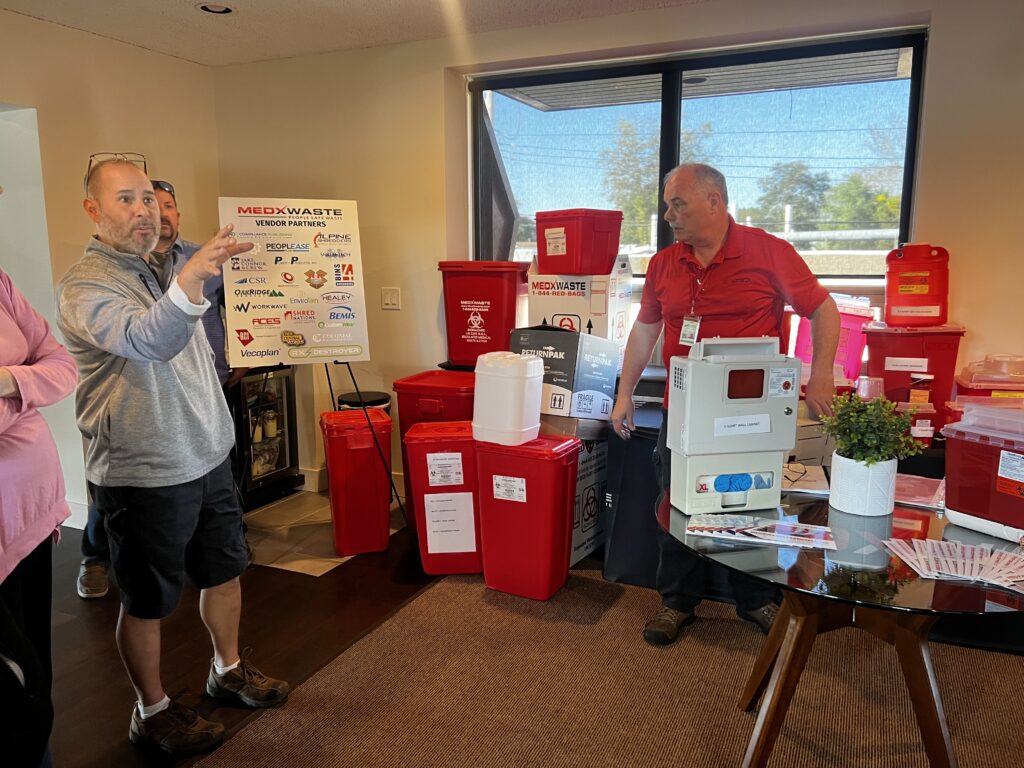The Hidden Costs of Improper Waste Segregation – Over time, this adds up to significant, unnecessary expenses for your facility, so being vigilant about proper waste segregation and disposal isn’t just mandatory but can also save lots.
Tossing used items into the nearest waste container and moving on to the next patient seems like an easy enough task for those working at these busy facilities. But what happens when those bins are collected can lead to serious injuries, fines, and worse. Medical waste generators must ensure that all sharps, pharmaceuticals, and regular trash does not end up in the same container. If not, what could have been a simple, low-cost disposal now quickly turns into an expensive and risky problem.
Let’s take a closer look…
Every waste stream has its own disposal requirements and costs. General waste is inexpensive to remove, while regulated medical and pharmaceutical waste must be handled through strict, specialized processes. When these materials are mixed, the entire container must be treated as hazardous waste. Now that means higher fees, additional pickups, and greater environmental processing, and most of it for materials that didn’t need that level of treatment.
Over time, this adds up to significant, unnecessary expenses for your facility, so being vigilant about proper waste segregation and disposal isn’t just mandatory but can also save lots.
First, though, it’s important to understand that improper segregation doesn’t just cost money; it puts people in danger. A single needle stick can expose employees, custodial staff, or waste handlers to serious infections and long-term health issues.
Pharmaceuticals can also leach into the environment through the soil or be accidentally accessed by unauthorized individuals. Even something as simple as a mislabeled bin can create confusion that leads to cross-contamination or compliance violations. Keeping each type of waste in its proper container is one of the simplest ways to maintain a safe, compliant workplace.
Then there’s also the environmental impact of improper disposal to think about. It comes with its own hidden costs. When pharmaceuticals or biohazardous materials are not properly segregated, they can end up polluting soil and waterways. Fines for regulatory non-compliance can also be steep, and once a facility gains a reputation for mishandling waste, rebuilding trust takes time and resources.
So how can you fix this?
Partnering with MedXwaste eliminates the guesswork. Our team provides clear guidance, compliant containers, and reliable pickup schedules tailored to your facility’s needs. We make it easy for your staff to identify, separate, and dispose of each type of waste correctly so you can stay compliant, protected, and cost-efficient.
Remember, even just small changes in how you handle waste can lead to major savings. Let the professional team at MedXwaste show you how proper segregation protects your facility, your people, and your bottom line.
You Might Also Like:
- It’s Flu Season: Waste Management Solutions for Vaccines
- What Happens to Medical Waste When It Leaves Your Facility
- What is Cradle to Grave Processing?

Service Areas: New York Medical Waste; Connecticut Medical Waste; New Jersey Medical Waste; and more.


